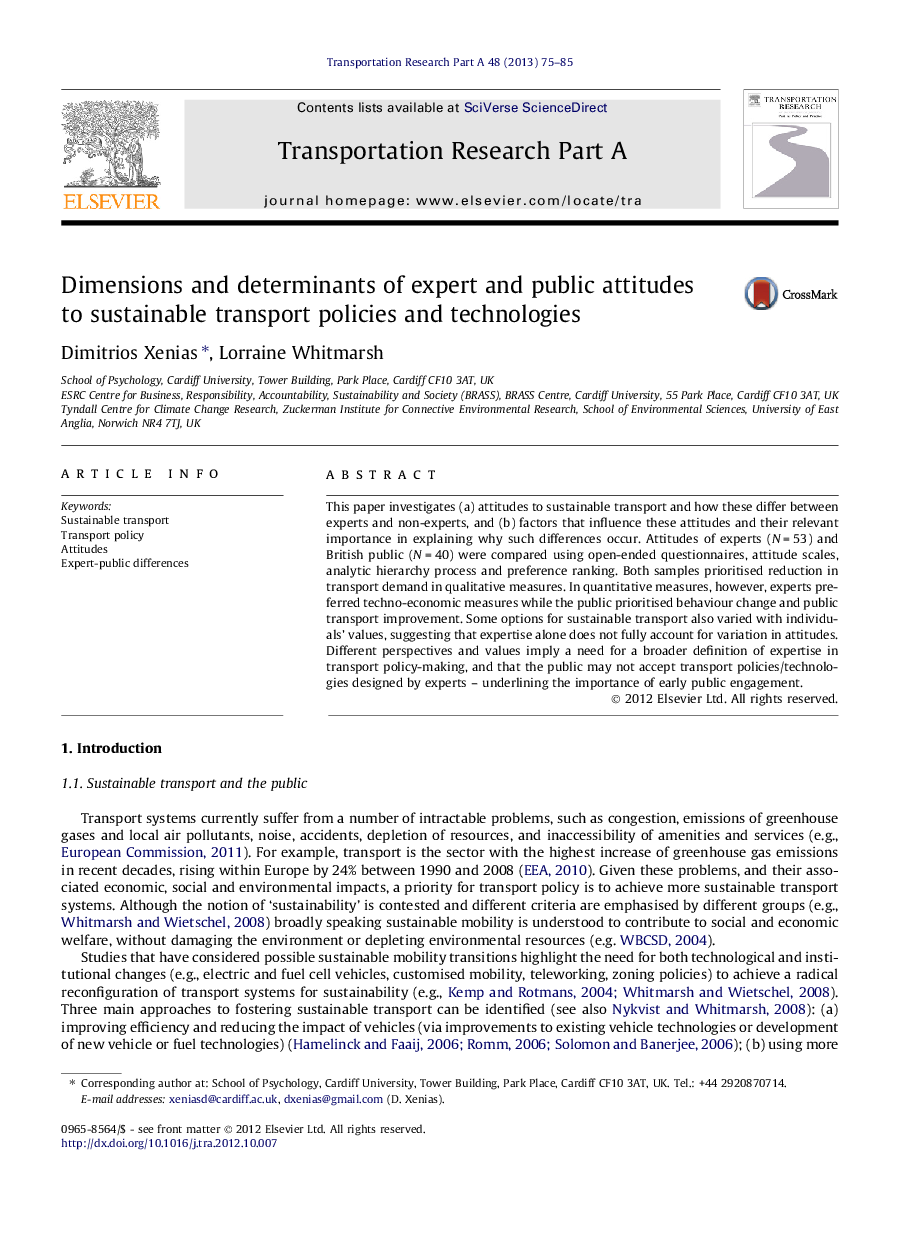| کد مقاله | کد نشریه | سال انتشار | مقاله انگلیسی | نسخه تمام متن |
|---|---|---|---|---|
| 311545 | 533983 | 2013 | 11 صفحه PDF | دانلود رایگان |

This paper investigates (a) attitudes to sustainable transport and how these differ between experts and non-experts, and (b) factors that influence these attitudes and their relevant importance in explaining why such differences occur. Attitudes of experts (N = 53) and British public (N = 40) were compared using open-ended questionnaires, attitude scales, analytic hierarchy process and preference ranking. Both samples prioritised reduction in transport demand in qualitative measures. In quantitative measures, however, experts preferred techno-economic measures while the public prioritised behaviour change and public transport improvement. Some options for sustainable transport also varied with individuals’ values, suggesting that expertise alone does not fully account for variation in attitudes. Different perspectives and values imply a need for a broader definition of expertise in transport policy-making, and that the public may not accept transport policies/technologies designed by experts – underlining the importance of early public engagement.
► Expert and citizen preferences for sustainable transport differ significantly.
► Experts propose top-down, theoretical solutions for sustainable transport.
► Citizens propose bottom-up, practical solutions for sustainable transport.
► Individual values, as well as expertise, are determinants of policy support.
► Combined qualitative and quantitative research is advantageous for complex issues.
Journal: Transportation Research Part A: Policy and Practice - Volume 48, February 2013, Pages 75–85